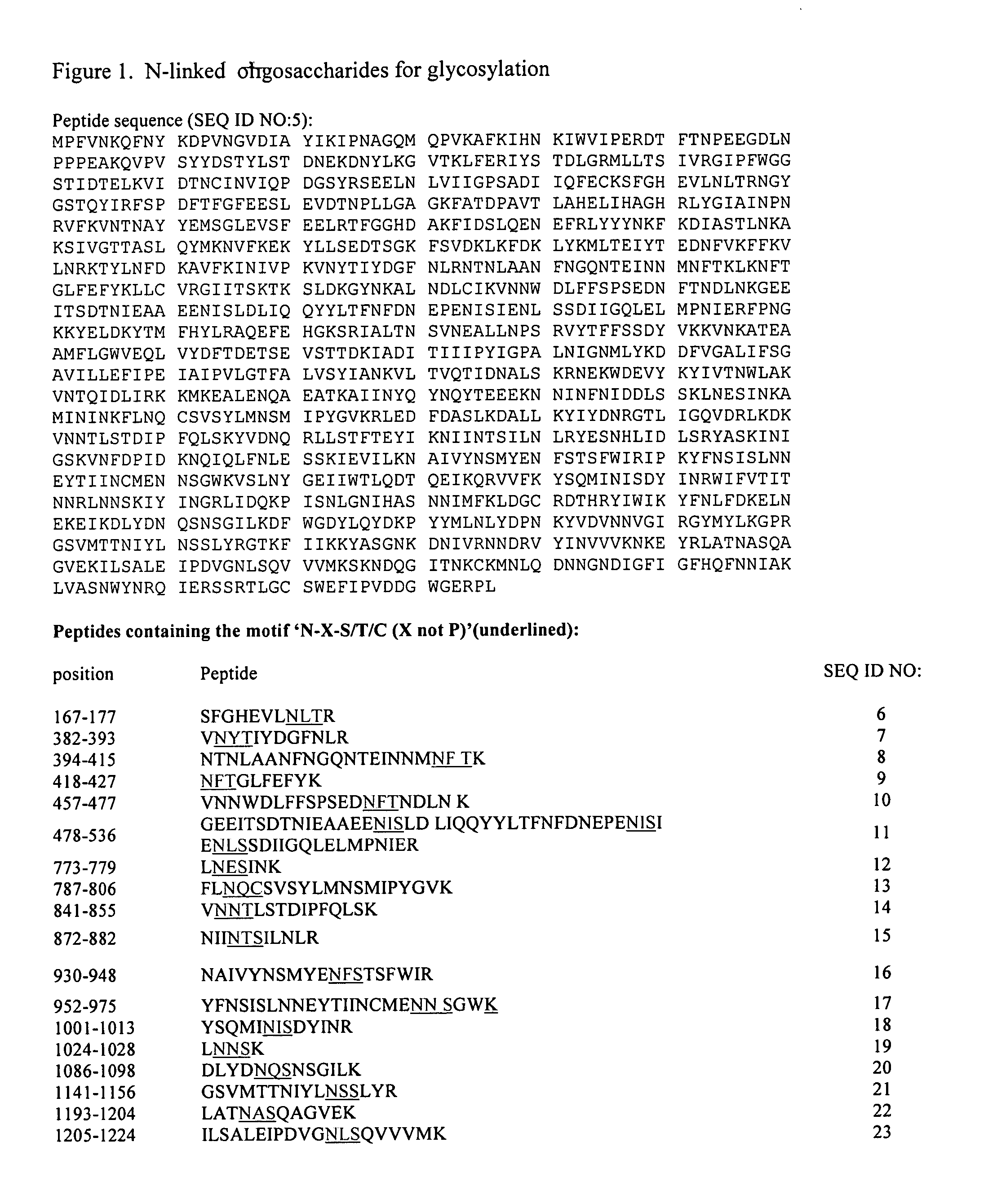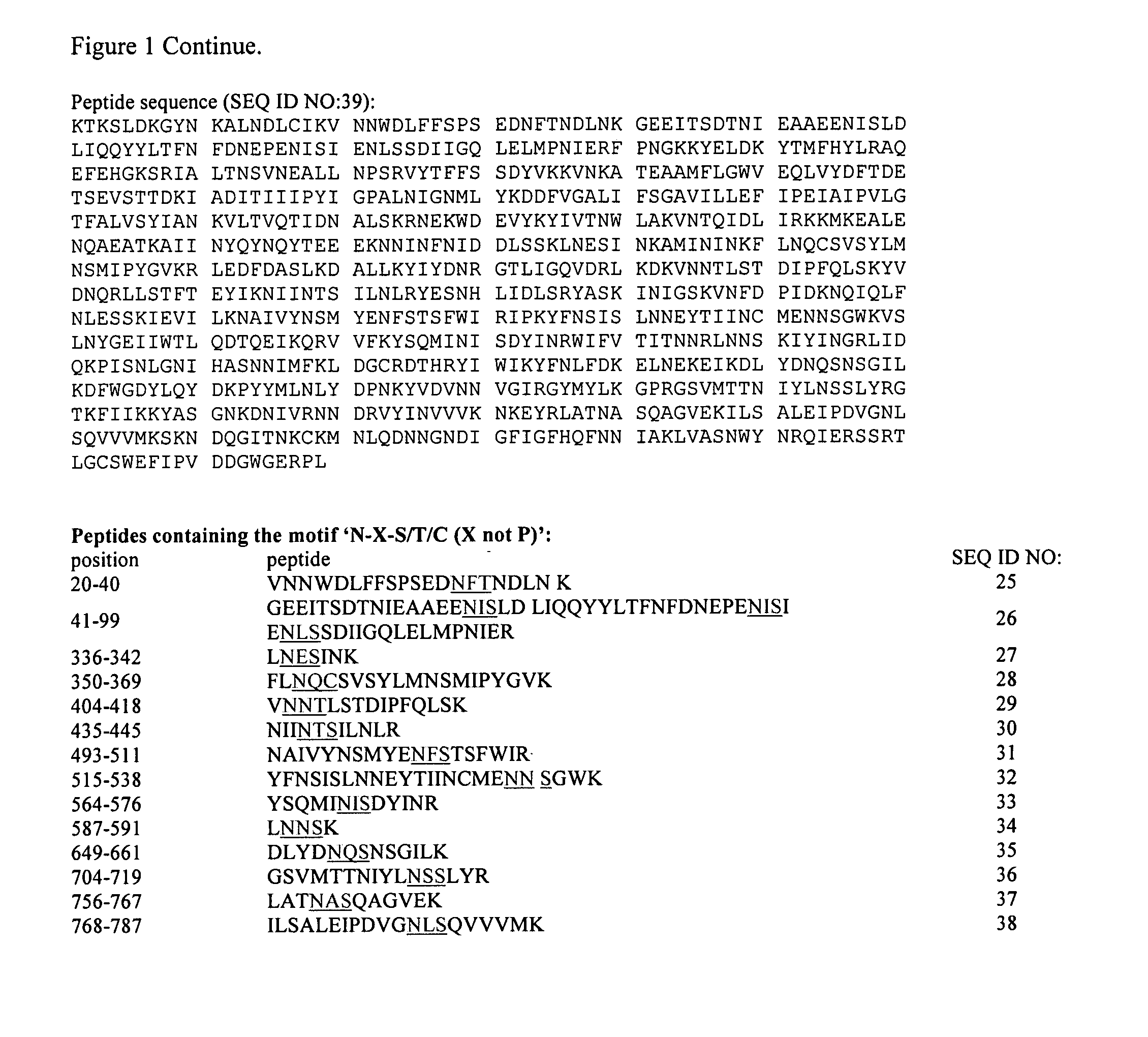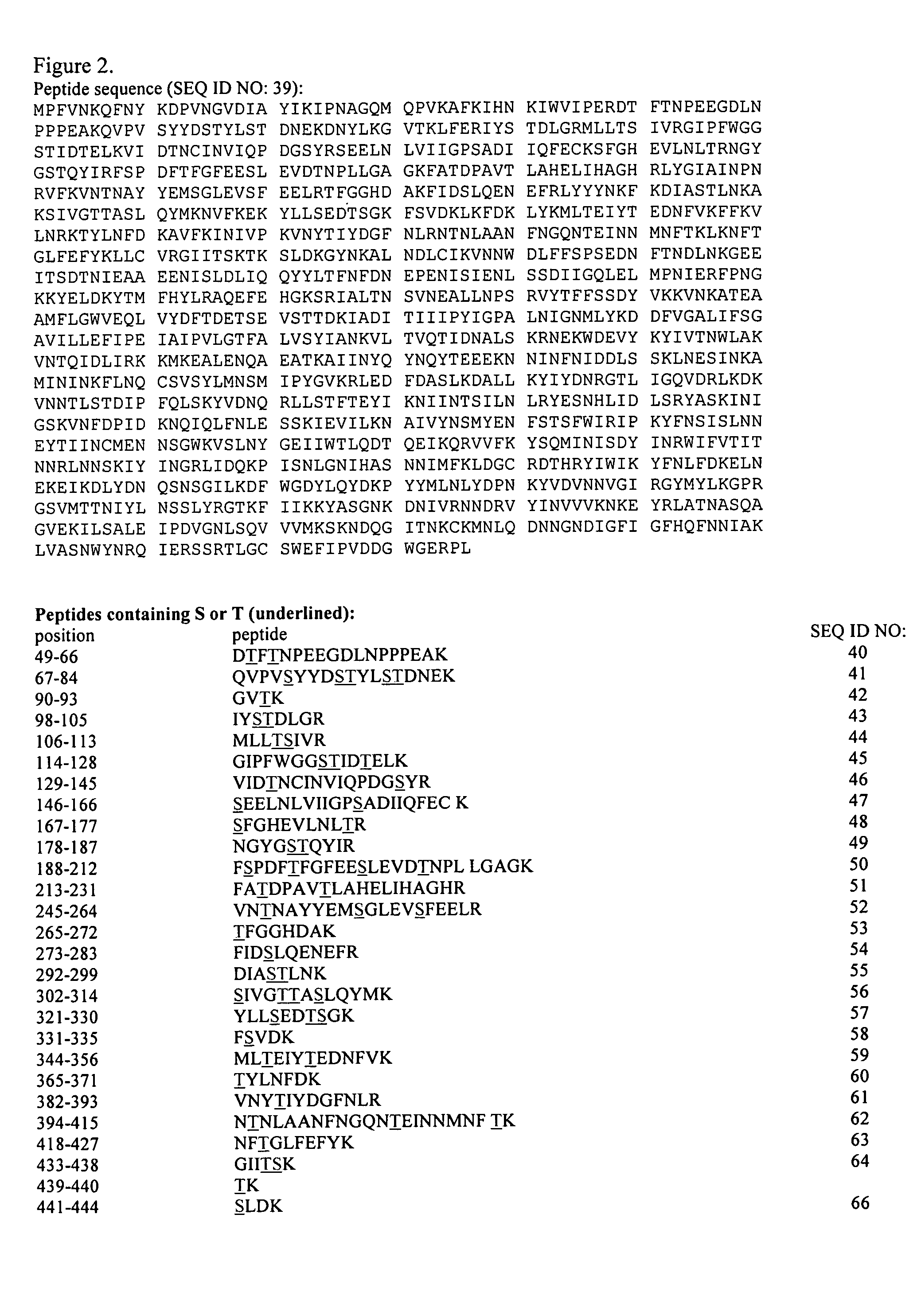Rescue agents for treating botulinum toxin intoxications
a botulinum toxin and rescue agent technology, applied in the field of rescue agents for treating botulinum toxin intoxication, can solve the problems of slow diffusion rate of botulinum toxin away, rapid detoxification of toxin, and unimpressive effects, and achieve the effect of facilitating the nicking of single-chain toxin
- Summary
- Abstract
- Description
- Claims
- Application Information
AI Technical Summary
Benefits of technology
Problems solved by technology
Method used
Image
Examples
example 1
Expression of BoNT / A-LC in Insect Cells with Baculovirus Expression System
[0136] Methods: pBAC-1 and pBACgus-1 are baculovirus transfer vectors designed for simplified cloning and expression of target genes in insect cells. Both these two transfer vectors encode an optional C-terminal His tag fusion sequence, which is for easy purification of target protein. pBACgus-1 also carries the gus gene encoding beta-glucuronidase that serves as a reporter to verify recombinant virus.
[0137] Full-length iBoNT / A, LC, iLC were subcloned into pBAC-1 or pBACgus-1 vectors. For construction of inactive LC and inactive BoNT / A, the point mutant H227Y at LC of BoNT / A has been shown to abolish LC activity. Therefore, to make inactive full-length BoNT / A, we have introduced the mutant H227Y by PCR with the site mutagenesis QuickChange XL kit (Stratagene, Calif.). The mutagenic oligonucleotide primers have been designed individually according to the desired mutation. The sense primer is 5′-GTA ACA TTA GC...
example 2
Expression of BoNT / A-LC in Insect Cells with Baculovirus Expression System, wherein BoNT / A-LC is Specifically Recognized by Both anti-BoNT / A-LC pAb and His-tag mAb
[0148] Expression of rLC / A was confirmed by SDS-PAGE and Western blotting using specific anti-LC / A polyclonal antibody and specific anti-His-tag (tagged on the C-terminal LC / A gene) monoclonal antibody.
[0149] The expression of recombinant LC / A was further determined with a specific anti-LC / A polyclonal antibody (pAb) for Western blot analysis. Two duplicating protein blots were probed with either anti-LC polyclonal antibody (FIG. 4A) or anti-His tag monoclonal antibody (FIG. 4B). Both antibodies specifically recognized the 50-kDa protein only in rLC / A-containing cells (lanes 1-4, not in vector alone or cell alone controls (lanes 5 and 6, FIG. 3).
[0150] The data clearly demonstrated that we have successfully expressed both wild type and inactive mutant rBoNT / A-LC in BEVS. The experiments also indicated that the expressio...
example 3
BoNT / A-LC Expressed in Insect Cells with Baculovirus Expression System, wherein BoNT / A-LC Specifically Cleaves the LC / A Specific Substrate SNAP25 as shown by GFP-SNAP25 Cleavage Assay
[0151] Evaluation of the endopeptidase enzymatic activity of rBoNT / A-LC, both wild type and inactive mutant, expressed in BEVS.
[0152] The endopeptidase enzymatic activity of both wild type and mutant rBoNT / A-LC was determined by GFP-SNAP cleavage assay. In principle, this is an in vitro fluorescence release assay for quantifying the protease activity of botulinum neurotoxins. It combines the ease and simplicity of a recombinant substrate with the sensitivity that can be obtained with a fluorescent signal. It is capable of measuring the activity of BoNT / A at low picomolar concentrations.
[0153] Briefly, the high titer of recombinant viruses containing either wild type LC / A or the inactive mutant LC / A from 3rd run was used to infect the insect Sf21 cells. After 3 days post-infection, cells were harveste...
PUM
| Property | Measurement | Unit |
|---|---|---|
| molecular weight | aaaaa | aaaaa |
| molecular weight | aaaaa | aaaaa |
| molecular weight | aaaaa | aaaaa |
Abstract
Description
Claims
Application Information
 Login to View More
Login to View More - R&D
- Intellectual Property
- Life Sciences
- Materials
- Tech Scout
- Unparalleled Data Quality
- Higher Quality Content
- 60% Fewer Hallucinations
Browse by: Latest US Patents, China's latest patents, Technical Efficacy Thesaurus, Application Domain, Technology Topic, Popular Technical Reports.
© 2025 PatSnap. All rights reserved.Legal|Privacy policy|Modern Slavery Act Transparency Statement|Sitemap|About US| Contact US: help@patsnap.com



